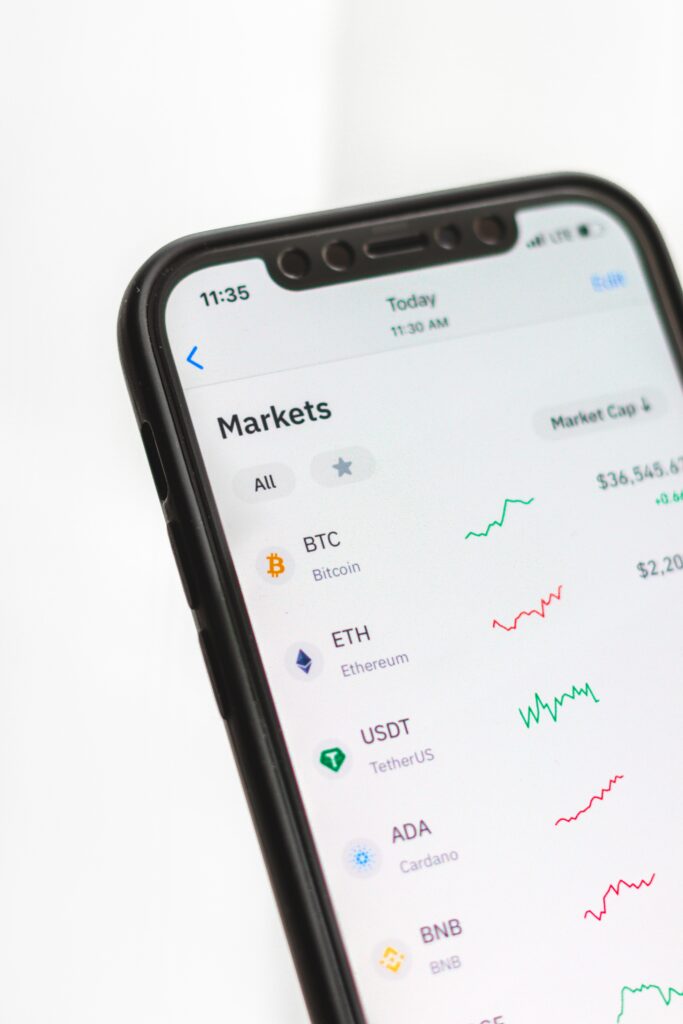Are you looking for a reliable and secure way to preserve your wealth? Look no further than Bitcoin. In today’s fast-paced world, traditional forms of storing value, such as gold and real estate, are being challenged by the emergence of cryptocurrencies. Bitcoin, in particular, has gained immense popularity as a digital store of value. With its decentralized nature and limited supply, Bitcoin provides a unique opportunity for individuals to protect their wealth from inflation and economic uncertainties. In this article, we will explore the benefits and potential risks of Bitcoin as a store of value, empowering you to make informed decisions about your financial future.

What is Bitcoin
A brief introduction to Bitcoin
Bitcoin, the world’s first decentralized cryptocurrency, was created in 2009 by an anonymous individual or group using the pseudonym Satoshi Nakamoto. It operates on a technology called blockchain, which is a digital ledger that records all transactions made with Bitcoin. Unlike traditional currencies issued by central banks, Bitcoin is not controlled by any government or financial institution. It has gained significant attention and popularity in recent years, revolutionizing the way people perceive and use money.
How Bitcoin works
Bitcoin operates on a decentralized network of computers called nodes. These nodes work together to validate transactions and maintain the integrity of the blockchain. When a transaction is initiated, it is broadcasted to the network and grouped together with other transactions into a “block”. Miners then compete to solve complex mathematical puzzles to validate and add the block to the blockchain. Once a block is added, the transactions become a permanent part of the blockchain and cannot be altered.
Bitcoin transactions are secured through cryptographic algorithms that ensure the integrity and privacy of the parties involved. Each user is assigned a unique digital signature that is used to verify and authenticate their transactions. This system eliminates the need for intermediaries such as banks, making transactions faster, cheaper, and more secure.
The significance of decentralized technology
One of the key attributes of Bitcoin is its decentralized nature. Unlike traditional banking systems, where a central authority oversees and controls all transactions, Bitcoin operates on a peer-to-peer network where no single entity has full control. This decentralized architecture provides several benefits.
Firstly, it eliminates the risk of a single point of failure. Traditional financial systems are vulnerable to hacking, censorship, and manipulation as they rely on centralized databases and servers. In contrast, Bitcoin’s distributed network makes it resilient to such attacks. Even if a few nodes go offline or are compromised, the network will continue to function.
Secondly, decentralization promotes financial freedom and inclusivity. Bitcoin allows anyone with an internet connection and a compatible device to participate in the global economy, bypassing the need for a traditional bank account. This is particularly significant in regions with limited access to banking services or where governments impose strict capital controls.
Lastly, Bitcoin’s decentralized technology has the potential to disrupt traditional financial systems, which are often marred by high fees, delays, and opaque processes. By removing intermediaries, Bitcoin enables direct peer-to-peer transactions, reducing costs and increasing transparency. This has the potential to improve financial efficiency and empower individuals to have greater control over their money.
Bitcoin as a Store of Value
Defining a store of value
A store of value refers to an asset or currency that can be stored and preserved over time without losing its purchasing power. It serves as a means to save wealth and preserve its value for future use. Traditionally, assets like gold, real estate, and government-backed currencies have been considered reliable stores of value.
Historical stores of value
Throughout history, different assets have served as stores of value. Gold, for example, has been highly regarded for its scarcity, durability, and long-term value. It has stood the test of time and has been used as a store of value for thousands of years. Other assets, such as land and artworks, have also served as stores of value, though they may be less liquid and accessible to the general population.
Bitcoin’s characteristics as a store of value
Bitcoin possesses several characteristics that make it an appealing store of value. Firstly, it has a limited supply. There will only ever be 21 million Bitcoins in existence, making it scarce by design. This scarcity creates an inherent value proposition, as demand for Bitcoin increases while the supply remains fixed.
Secondly, Bitcoin is divisible. Each Bitcoin can be divided into smaller units, called satoshis, allowing for precision in the transfer and preservation of value. This divisibility makes Bitcoin highly liquid and accessible to individuals with various financial capacities.
Furthermore, Bitcoin is portable and easily transferrable across geographic boundaries. Transactions can be conducted with ease, enabling users to preserve and transport their wealth without restrictions or onerous processes.
Lastly, Bitcoin’s decentralized nature and cryptographic security provide protection against censorship, confiscation, and government interference. This assures individuals that their stored value is secure and immune to arbitrary actions that can erode the value of traditional stores of value.
Comparison to traditional stores of value
Bitcoin’s emergence as a store of value has led to comparisons with traditional assets like gold and fiat currencies. While its characteristics differ from traditional stores of value, Bitcoin offers unique advantages.
Compared to gold, Bitcoin has the advantage of being easily transferable and divisible. It can be quickly sent anywhere in the world, making it a more practical medium of exchange. Additionally, Bitcoin’s supply is fixed, while gold’s supply can fluctuate depending on mining activities and new discoveries. This fixed supply of Bitcoin may contribute to its potential value appreciation over time.
When compared to fiat currencies, Bitcoin offers protection against inflation and government interference. Many government-backed currencies historically lose value due to inflation or economic instability. Bitcoin’s limited supply and decentralized nature provide a hedge against such risks.
While traditional assets have stood the test of time, Bitcoin’s emergence as a viable store of value offers an alternative to individuals seeking diversification and new opportunities for wealth preservation.
The Limited Supply of Bitcoin
The concept of scarcity in Bitcoin
One of the defining characteristics of Bitcoin is its limited supply. Unlike fiat currencies that can be printed at the discretion of central banks, Bitcoin’s supply is algorithmically determined. It follows a predetermined schedule that gradually reduces the rate at which new Bitcoins are created.
Bitcoin’s scarcity is based on a concept called mining. Miners, who contribute computing power to secure the network and validate transactions, are rewarded with newly created Bitcoins. However, the rate at which new Bitcoins are mined decreases over time, following a schedule known as “Bitcoin halving.” This limitation ensures that the supply of Bitcoin will never exceed 21 million coins.
Bitcoin’s halving event
The Bitcoin halving is a significant event that occurs approximately every four years. During this event, the number of new Bitcoins issued to miners as a reward is cut in half. The first halving occurred in 2012, reducing the block reward from 50 to 25 Bitcoins. The second halving occurred in 2016, reducing the reward to 12.5 Bitcoins, and the most recent halving took place in 2020, further reducing the reward to 6.25 Bitcoins.
By halving the block reward, Bitcoin’s supply is constrained, increasing the scarcity of the cryptocurrency. This reduction in supply also has implications for the economics of Bitcoin, as it reduces the rate at which new coins enter circulation, potentially influencing its value.
Impact of a limited supply on value
The limited supply of Bitcoin plays a crucial role in determining its value. As demand for Bitcoin rises, the scarcity of the cryptocurrency makes it more desirable. Basic economic principles of supply and demand dictate that when demand exceeds supply, prices increase.
Bitcoin’s limited supply creates a sense of digital scarcity, similar to precious metals like gold. However, Bitcoin’s scarcity is more predictable and transparent. The fixed supply schedule and the knowledge that no more than 21 million Bitcoins will ever exist contribute to its value proposition as a potentially appreciating asset.
Furthermore, the limited supply of Bitcoin makes it resistant to inflation. As governments and central banks around the world continue to print more fiat currency, the value of traditional stores of value can erode. Bitcoin’s limited supply serves as a hedge against such inflationary risks, attracting investors seeking to preserve their wealth in a stable and finite asset.
Bitcoin’s Volatility
Understanding Bitcoin’s price volatility
Bitcoin’s price has experienced significant volatility since its inception. It is not uncommon to see its value fluctuate by double-digit percentages within a short period. This volatility has often been attributed to various factors, including market speculation, regulatory developments, macroeconomic events, and technological advancements.
The underlying factors influencing Bitcoin’s volatility are complex and multifaceted. The market’s limited liquidity and relatively small size compared to traditional financial markets make it more susceptible to large price swings. Additionally, the perception and sentiment surrounding Bitcoin can heavily influence its price, with positive news and developments often driving prices up, while negative news leads to price declines.
Factors influencing price fluctuations
Several key factors contribute to Bitcoin’s price volatility. Market sentiment and investor behavior play a significant role. Positive news regarding Bitcoin’s adoption by mainstream institutions or regulatory clarity can boost confidence and increase demand, driving up prices. Conversely, negative events, such as regulatory crackdowns or security breaches, can lead to panic selling and price declines.
Technological advancements and developments in the underlying blockchain technology can also impact Bitcoin’s price. Improvements in scalability, privacy, and functionality may attract new users and investors, increasing demand and driving up prices.
Moreover, macroeconomic factors can influence Bitcoin’s price movements. Economic crises, geopolitical tensions, and monetary policy decisions can drive investors towards Bitcoin as a perceived safe-haven asset or a hedge against traditional markets.
Long-term vs short-term volatility
While Bitcoin is often associated with short-term price volatility, it is essential to distinguish between short-term fluctuations and long-term trends. In the short term, Bitcoin’s price can be subject to significant swings, driven by market sentiment and speculative investing. However, when examining Bitcoin’s performance over longer time periods, a more stable and consistent trend emerges.
Bitcoin’s long-term volatility has actually decreased over time as the market has matured and institutional investors have entered the space. As adoption continues to grow and more market participants invest for the long term, it is expected that Bitcoin’s volatility will eventually stabilize further.
Mitigating volatility risks
For individuals looking to invest in Bitcoin, understanding and mitigating volatility risks is crucial. Various strategies can be employed to manage the potential downside of Bitcoin’s volatility.
Diversification is a common approach, spreading investments across different asset classes, including traditional stocks, bonds, and real estate. By diversifying the portfolio, the impact of any single asset’s volatility is minimized, providing a more balanced overall investment strategy.
Another strategy is dollar-cost averaging, which involves regularly purchasing a fixed dollar amount of Bitcoin, regardless of its price. This approach mitigates the risk of buying at a peak or selling at a low point, as it averages out the purchase price over time.
Additionally, setting clear investment goals and having a long-term time horizon can help mitigate the impact of short-term price volatility. Bitcoin’s historical performance has demonstrated significant long-term growth potential, and focusing on that perspective can help investors navigate the short-term fluctuations.

Bitcoin and Inflation Hedge
Inflation and its impact on fiat currencies
Fiat currencies, such as the US Dollar or Euro, are subject to inflationary pressures. Inflation occurs when the general level of prices increases over time, eroding the purchasing power of currency. This erosion of value is particularly evident in countries experiencing high levels of inflation, where people’s savings can quickly become worthless.
Inflation is often caused by factors such as excessive money supply, fiscal policies, and economic imbalances. Central banks attempt to manage inflation by adjusting interest rates and employing monetary policy tools.
Bitcoin as a hedge against inflation
Bitcoin’s fixed supply and limited issuance make it an attractive hedge against inflation. Unlike fiat currencies, which can be printed endlessly by central banks, Bitcoin’s supply is immutable and transparently governed by code. The predetermined schedule and the fact that there will never be more than 21 million Bitcoins ensures its scarcity and the preservation of its value over time.
The concept of using Bitcoin as an inflation hedge is grounded in the belief that its limited supply and increasing demand will lead to price appreciation. As fiat currencies lose value due to inflation, the finite supply of Bitcoin makes it an attractive alternative for individuals seeking to protect their wealth against inflationary pressures.
Comparing Bitcoin to traditional hedges
Gold has traditionally been considered a reliable hedge against inflation. Its scarcity, durability, and long history as a store of value have given it the reputation of a reliable safe-haven asset. However, Bitcoin offers several advantages over gold.
Bitcoin’s portability and divisibility make it more easily transferable and useful in day-to-day transactions than physical gold. Additionally, Bitcoin’s decentralized and digital nature eliminates the need for physical storage and reduces the associated risks of theft and loss.
While gold has a proven track record, Bitcoin’s performance over the past decade has demonstrated significant long-term growth potential. As Bitcoin continues to mature and gain acceptance, it is increasingly viewed as a viable alternative to traditional hedges against inflation.
Bitcoin’s Performance Over Time
Bitcoin’s growth and price history
Since its creation in 2009, Bitcoin has experienced exponential growth and significant price appreciation. In its early days, Bitcoin had little to no value and was primarily used by early adopters and tech enthusiasts. However, over time, it has gained mainstream attention and investor interest, leading to substantial price increases.
Bitcoin’s price history has been marked by cycles of bull markets followed by corrections and consolidation periods. The most notable and well-known bull market occurred in late 2017 when Bitcoin’s price soared to nearly $20,000 before experiencing a significant correction. This rapid price increase was driven by increased adoption, media attention, and speculative buying.
Since then, Bitcoin has gone through multiple market cycles, reaching new all-time highs and experiencing subsequent pullbacks. Despite these price fluctuations, Bitcoin’s long-term trend has been one of overall growth and increasing adoption.
The role of market cycles
Bitcoin’s volatility and price movements can largely be attributed to the psychology of market participants during different market cycles. During bull markets, there is often a surge in demand as investors perceive the potential for significant returns. This increased demand drives up prices, leading to a euphoric sentiment and further fueling buying activity.
However, these bullish periods are often followed by corrections and bearish phases. As prices reach unsustainable levels, profit-taking and selling pressure increase, triggering a market downturn. This correction phase allows the market to reset, weed out speculative excesses, and consolidate before another cycle begins.
Understanding and recognizing market cycles is crucial for long-term investors in Bitcoin. By having a broader perspective and focusing on the fundamental value proposition of Bitcoin, investors can navigate the short-term volatility and focus on the potential long-term growth.
Long-term investment potential
Bitcoin’s performance over time has demonstrated its potential as a long-term investment. Despite its short-term price volatility and fluctuations, the overall trend has been upward.
Bitcoin’s finite supply, its appeal as a digital store of value, and its disruptive potential in traditional financial systems create a compelling investment case for those looking to diversify their portfolios or preserve wealth. As adoption and acceptance continue to grow, Bitcoin has the potential to become a significant asset class with an increased role in global finance.
However, as with any investment, it is important to conduct thorough research, educate oneself about the risks, and consult with financial advisors to make informed decisions based on individual risk tolerance and investment goals.

Security and Storage of Bitcoin
Securing Bitcoin through cryptography
Bitcoin’s security is paramount, given its decentralized nature and the potential for financial loss if not properly protected. The security of Bitcoin is ensured through strong cryptographic algorithms that protect transactions and safeguard user funds.
Bitcoin uses public-key cryptography, where each user is assigned a unique pair of cryptographic keys: a public key and a private key. The public key is used to receive funds, while the private key is kept secret and used to sign transactions to authorize the transfer of Bitcoin.
By using complex mathematical algorithms, Bitcoin’s cryptography ensures the integrity, privacy, and authenticity of transactions. The private key acts as a signature that verifies the ownership and authenticity of the transaction, making it nearly impossible for unauthorized parties to forge or tamper with transactions.
Types of Bitcoin wallets
To store and manage Bitcoin, users utilize digital wallets, which contain the private keys necessary to access and transact with their Bitcoin. There are several types of Bitcoin wallets, each with its own characteristics and security considerations.
Software Wallets: These wallets are applications installed on computers or mobile devices. They provide convenient access to Bitcoin and can be used for day-to-day transactions. Software wallets are categorized into two types:
- Hot Wallets: Hot wallets are connected to the internet and provide immediate access to Bitcoin. While convenient, they are more susceptible to hacking and security breaches.
- Cold Wallets: Cold wallets are not connected to the internet, thus providing greater security against online threats. They are typically used for long-term storage and are considered more secure, but less convenient for regular transactions.
Hardware Wallets: These physical devices are specifically designed to securely store Bitcoin private keys. They offer enhanced security features, such as offline storage and built-in encryption. Hardware wallets provide a balance between security and convenience, making them an increasingly popular choice for long-term Bitcoin storage.
Paper Wallets: Paper wallets involve printing the private key and Bitcoin address on a physical piece of paper. This offline storage option provides an additional level of security, as it is not susceptible to online threats. However, the risk of physical damage or loss should be considered when using paper wallets.
Each wallet type has its own advantages and considerations. Users should carefully evaluate their security needs, convenience requirements, and the risks associated with each wallet type before choosing a storage solution.
Cold storage and hardware wallets
Cold storage refers to the practice of storing Bitcoin private keys offline or in a hardware device that is not connected to the internet. Cold storage provides an additional layer of security against online threats and hacking attempts.
Hardware wallets are a common form of cold storage. These devices are small, portable, and designed specifically for securely storing private keys. They feature built-in encryption and require physical access and confirmation to authorize transactions, making them highly secure.
By keeping private keys offline, hardware wallets protect against malware, phishing attacks, and other online threats. Even if a user’s computer or mobile device is compromised, hackers cannot access or steal the private keys stored on the hardware wallet.
It is important to note, however, that while cold storage provides enhanced security, it may sacrifice some convenience. Cold wallets require physical access to authorize transactions, which can be cumbersome for daily use. As such, a combination of cold storage for long-term storage and hot wallets for day-to-day transactions may be a suitable approach for most users.
Protecting against theft and loss
Protecting Bitcoin against theft and loss is essential for maintaining control and ownership of one’s assets. While Bitcoin itself is secure, the vulnerabilities lie in how individuals store and manage their private keys.
To mitigate the risk of theft, it is crucial to follow security best practices:
Use strong passwords: Choose complex passwords that are not easily guessable and enable two-factor authentication (2FA) when available.
Back up your wallet: Regularly back up your wallet’s private keys and store them in secure and redundant locations. This ensures that in the event of a hardware failure or loss, you can still recover your Bitcoin.
Update software regularly: Keep your wallet software and operating system updated to protect against potential security vulnerabilities.
Exercise caution online: Be mindful of phishing attempts, malware, and suspicious websites or links. Always verify the authenticity of software wallets or online services before using them.
Diversify storage: Consider using a combination of different wallet types and storage solutions to reduce the risk of loss. This can include using both hardware wallets for long-term storage and software wallets for day-to-day transactions.
In the unfortunate event of theft or loss, Bitcoin cannot be easily recovered like traditional assets. Therefore, preventative measures and responsible storage practices are crucial for protecting one’s Bitcoin holdings.
Government Regulations and Acceptance
The evolving regulatory landscape
Bitcoin’s rise to prominence has attracted the attention of governments and regulatory bodies worldwide. The regulatory landscape for cryptocurrencies is still evolving, with different countries taking varying approaches to understand and regulate this new asset class.
Some governments have embraced Bitcoin and blockchain technology, recognizing their potential for innovation and economic growth. Others have approached it with caution, introducing regulations to mitigate risks such as money laundering, terrorism financing, tax evasion, and consumer protection.
Regulatory frameworks for cryptocurrencies typically aim to strike a balance between fostering innovation while protecting investors and maintaining financial stability. These regulations often cover areas such as Anti-Money Laundering (AML) and Know Your Customer (KYC) requirements, taxation, licensing of cryptocurrency exchanges, and securities regulations.
Government acceptance of Bitcoin
Bitcoin’s acceptance by governments has been a mixed bag. While some countries have taken proactive steps to integrate Bitcoin into their financial systems, others have been more cautious or even hostile towards its adoption.
Countries like the United States, Japan, and Switzerland have recognized Bitcoin and other cryptocurrencies as legitimate forms of payment and have implemented regulations to support their use. Government agencies in these countries have issued guidelines for businesses and individuals to ensure compliance and protect consumers.
On the other hand, countries like China and India have imposed significant restrictions on Bitcoin and other cryptocurrencies. China, for example, has banned initial coin offerings (ICOs) and cracked down on cryptocurrency exchanges, citing concerns over financial stability and capital flight.
Government acceptance of Bitcoin varies greatly, and the regulatory landscape is still evolving. As awareness and understanding of cryptocurrencies continue to grow, governments are likely to refine their approaches and create more comprehensive frameworks for the use and regulation of Bitcoin.
Impact of regulations on mainstream adoption
The regulatory environment plays a significant role in shaping the adoption and acceptance of Bitcoin by mainstream institutions and the general public. Clear and favorable regulations can provide certainty and encourage businesses and individuals to embrace cryptocurrencies.
Regulations that promote consumer protection, financial stability, and prevent illegal activities are essential for establishing trust and ensuring the long-term viability of cryptocurrencies. Regulatory clarity can also encourage institutional investors, who often have strict compliance requirements, to enter the Bitcoin market.
Conversely, overly restrictive or uncertain regulations can hinder adoption and suppress innovation. Businesses may be hesitant to enter the cryptocurrency space due to compliance burdens or the fear of regulatory repercussions. Individuals may also be discouraged from using Bitcoin if they perceive it to be risky or non-compliant.
The impact of regulations on mainstream adoption is an ongoing discussion, and striking the right balance between oversight and innovation remains a challenge. As governments continue to grapple with the regulatory implications of Bitcoin, finding the right approach will be crucial to unlocking its full potential.

Bitcoin’s Cultural and Social Implications
Bitcoin as a disruptor of traditional financial systems
Bitcoin’s emergence has brought about significant cultural and social implications, challenging the status quo of traditional financial systems. It is seen by many as a disruptive force that can reshape the way we transact, store value, and interact with money.
By operating on a decentralized network and utilizing blockchain technology, Bitcoin bypasses the need for intermediaries such as banks. This disintermediation fundamentally changes the power dynamics in financial transactions, empowering individuals and reducing dependence on centralized institutions.
Additionally, Bitcoin’s peer-to-peer nature removes geographical barriers and opens up financial opportunities to those who may not have access to traditional banking services. This potential for financial inclusion has the potential to reshape economic systems and bridge the gap between the banked and unbanked populations.
Potential democratization of wealth
Bitcoin’s decentralized nature and the ability for anyone to participate in its network have the potential to democratize wealth. Traditional financial systems often favor those with access to capital, leaving many individuals excluded from wealth-building opportunities.
Bitcoin allows individuals to participate in a global financial system where value can be transferred and stored without relying on traditional intermediaries. This potential for financial empowerment can level the playing field and provide greater opportunities for wealth creation, regardless of an individual’s location or background.
Additionally, Bitcoin’s limited supply and potential for appreciation provide an opportunity for individuals to preserve and grow their wealth in a deflationary asset. This potential to preserve purchasing power encourages saving and responsible financial behavior, which can contribute to long-term economic stability and personal financial independence.
Implications for economic inclusivity
Bitcoin’s cultural and social implications extend beyond individual wealth creation. Its potential to facilitate financial transactions without traditional barriers can have far-reaching effects on economic inclusivity and global commerce.
Cross-border transactions, in particular, stand to benefit from Bitcoin’s efficiency and reduced fees compared to traditional remittance services. Individuals in developing countries who rely on remittances can potentially save significant amounts on transaction costs, improving their overall economic well-being.
Furthermore, Bitcoin’s potential to provide financial services to the unbanked and underbanked population can foster economic growth in regions where traditional banking services are limited or inaccessible. By enabling individuals to participate in the global economy, Bitcoin can stimulate entrepreneurship and innovation, driving economic development and reducing income inequality.
While the cultural and social implications of Bitcoin are still unfolding, its disruptive potential in reshaping financial systems, democratizing wealth, and promoting economic inclusivity holds significant promise for positive societal change.
Criticism and Risks of Bitcoin as a Store of Value
Environmental concerns and energy consumption
Bitcoin’s energy consumption has been a subject of criticism and concern, particularly in the context of its environmental impact. The mining process for Bitcoin requires a significant amount of computational power, which in turn consumes substantial amounts of electricity.
Critics argue that the energy consumption associated with Bitcoin mining contributes to carbon emissions and exacerbates climate change. As the network grows and more miners join, these concerns are magnified.
However, it is essential to note that Bitcoin mining is often located in areas where renewable energy sources are abundant, such as regions with excess hydroelectric power. Additionally, technological advancements are being made to increase the energy efficiency of mining operations and promote the use of renewable energy sources.
Market manipulation
Bitcoin’s price volatility and relatively small market size make it susceptible to market manipulation. Whales, individuals or entities holding significant amounts of Bitcoin, have the ability to influence prices by buying or selling large quantities of the cryptocurrency.
Moreover, the lack of regulatory oversight and transparency in certain cryptocurrency exchanges creates an environment vulnerable to manipulation. Events of price manipulation, such as “pump and dump” schemes, have occurred in the past, leading to concerns about market integrity.
As the market matures and regulatory frameworks are implemented, the risk of manipulation may decrease. Increased oversight and transparency can deter malicious actors and protect market participants from fraudulent activities.
Regulatory risks and legal challenges
The regulatory landscape surrounding Bitcoin is still evolving, and regulatory actions or legal challenges can pose risks to its value and utility as a store of value. Government restrictions, bans, or negative regulatory developments can significantly impact the perception and acceptance of Bitcoin.
While some governments have embraced Bitcoin, others have taken more stringent approaches. Uncertainty surrounding regulations can create a challenging environment for businesses and individuals, potentially impacting Bitcoin’s adoption and value.
Moreover, legal challenges and disputes related to Bitcoin can have implications for ownership and transferability. As the legal framework surrounding Bitcoin is still being defined, legal rights and protections may vary from jurisdiction to jurisdiction.
Perception and societal adoption
Bitcoin’s societal adoption and perception remain a challenge for its widespread acceptance as a store of value. Despite its growing popularity and increasing institutional adoption, Bitcoin is often associated with criminal activities, speculation, and volatility.
Public perception and understanding of Bitcoin can be influenced by media coverage, which tends to focus on negative stories and price volatility. Misunderstandings and misconceptions about Bitcoin can create a barrier to its widespread adoption as a store of value.
Additionally, skepticism towards Bitcoin’s legitimacy and its association with the dark web and illegal activities can hinder its acceptance by mainstream institutions. Building trust and addressing these concerns through education, regulatory frameworks, and responsible behavior within the Bitcoin community can help overcome these challenges.

Conclusion
Bitcoin’s emergence as a store of value has revolutionized the way people perceive and use money. Its decentralized nature, limited supply, and potential as a hedge against inflation have made it an appealing alternative to traditional stores of value.
Bitcoin’s price volatility and the evolving regulatory landscape present both opportunities and risks for investors. While short-term price fluctuations can be significant, examining Bitcoin’s long-term growth and adoption trends provides a more stable perspective.
Furthermore, Bitcoin’s cultural and social implications highlight its disruptive potential in reshaping financial systems, promoting economic inclusivity, and democratizing wealth. However, criticisms and risks such as environmental concerns, market manipulation, and regulatory challenges must also be considered.
In the rapidly evolving world of cryptocurrencies, understanding the fundamentals, conducting thorough research, and practicing responsible storage and investment strategies are essential for individuals seeking to engage with Bitcoin as a store of value.

